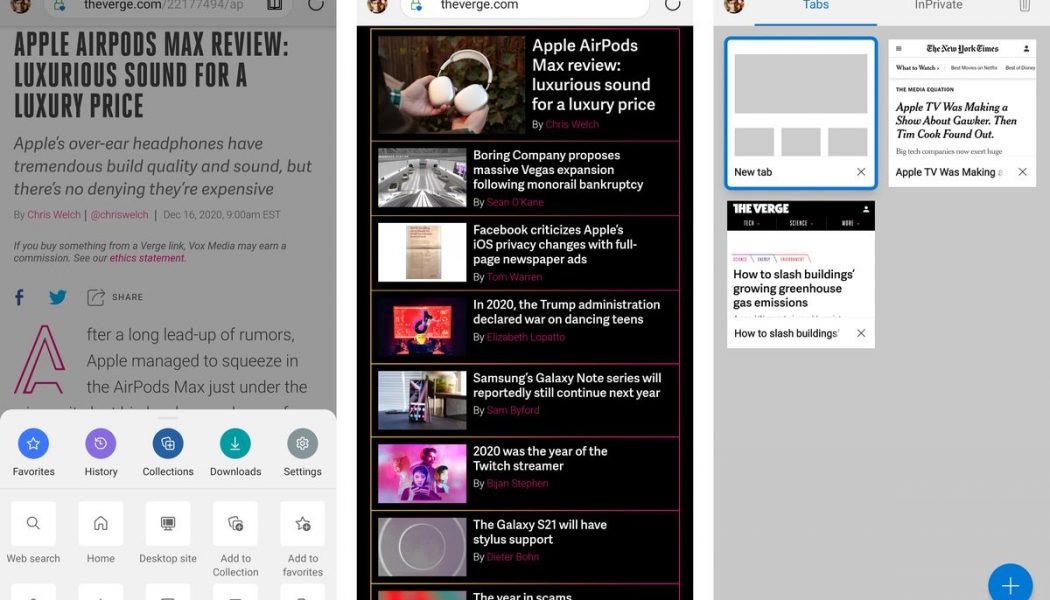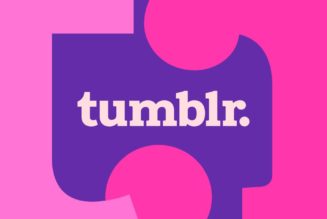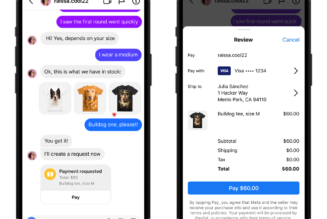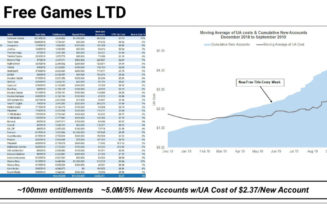The first thing to do when you get a new phone is to log back into all your accounts — email, Facebook, Signal, and so on — to make sure you’re getting all the important notifications you need and messages from friends. But after that, you’ll want to install apps that replace the default tools (like the web browser or weather app) with something better, along with apps that’ll just make your day-to-day usage of the phone a lot more helpful.
Here are our suggestions for where to start when setting up an Android phone.
We’ve rounded up our favorite and most-used games, apps, and entertainment. Check out our app picks for iPhones, Android phones, Windows PCs, and M1-equipped Macs; our favorite mobile games from Apple Arcade and Google Play Pass; and our top choices for gaming PCs, the PS5, Xbox One and Series X / S, Nintendo Switch, and VR. We’ve also listed our favorite streaming shows on Disney Plus, Hulu, ESPN Plus, and Netflix; some great sci-fi books; and exciting new podcasts. (Note: pricing was accurate at the time of publishing but may change.)
Microsoft Edge
:no_upscale()/cdn.vox-cdn.com/uploads/chorus_asset/file/22175211/edge3.jpg)
There was one thing I wanted from a mobile browser this year, and Microsoft Edge had it: access to the tab switcher on the bottom of the screen. Google Chrome and Samsung Internet both require you to to move your hand to the very top corner of the screen when you want to change to another tab. Edge’s placement of the tab switcher at the bottom is far more convenient to reach. It’s also just an all-around solid browser, with built-in tracking prevention options and quick access to features like reading the page aloud and finding text within a given page. (Since I last tested browsers, Firefox has moved its tab switcher to the bottom, too, and it offers tab syncing from mobile to desktop, so it might also be a great alternative to your phone’s built-in, hard-to-handle browser.)
JustWatch
:no_upscale()/cdn.vox-cdn.com/uploads/chorus_asset/file/22175210/justwatch3.jpg)
JustWatch isn’t a great app — it’s really buggy and often very slow — but it is a necessity: the app is basically a TV Guide for streaming services. Want to know where you can watch A Christmas Story? Type it in, and JustWatch will let you know that it’s available to stream if you’re a DirecTV subscriber, to rent for $3.99 on just about any platform you could want, and to buy as cheaply as $8.99. The app can also recommend shows and movies currently available on the services to which you subscribe. It won’t stop you from spending an hour just looking through all the options, but it’ll save you from bouncing between half a dozen apps.
RainViewer
:no_upscale()/cdn.vox-cdn.com/uploads/chorus_asset/file/22175209/rainviewer3.jpg)
I tried out at least ten different weather apps this year in search of a replacement for Dark Sky — the single best weather app out there — because it was pulled from Android in August after being purchased by Apple. After all that looking, I only found one app that could competently replicate Dark Sky’s game-changing feature: providing accurate minute-to-minute weather forecasts. That app is RainViewer, and while it’s not great as a day-to-day weather app, it’s a must-install as a Dark Sky replacement. I haven’t found it to be quite as trustworthy as Dark Sky, but it reliably informs me when rain is about to start and shows a chart predicting how heavy the rain will be over the coming hour.
1Password / LastPass
:no_upscale()/cdn.vox-cdn.com/uploads/chorus_asset/file/19537374/1pwlastpass.jpg)
I must have written this a dozen times on The Verge by now, and I’ll happily write it again: you should be using a password manager. It’s not really about remembering your passwords so much as it’s about security — I couldn’t tell you what my password is to Facebook, Gmail, my bank account, and so on, because my password manager made up strong, randomized passwords for each of them, and automatically plugs them in when I visit those sites. All I have to remember is my own strong password to unlock the password manager itself. LastPass is a great free alternative, but my personal favorite service is 1Password. I started using the company’s subscription family plan this year, and it’s offered a really simple way for me and my wife to share passwords to joint accounts. Just a heads-up: setting up a password manager for the first time can be a little onerous, but once you’re done, it’s easy going from there.
Clue
:no_upscale()/cdn.vox-cdn.com/uploads/chorus_asset/file/19537469/clue2.jpg)
Clue offers an easy way to track your menstrual cycle and predict when your next period will be. The app also lets you track your energy level, sexual activity, and other details that may be associated with your cycle. More importantly, the app has one of the clearer privacy policies out there for a service that’s going to be collecting such personal data. The company says it doesn’t sell users’ data and that “only a few people” within the company can access your information. Some data may be shared anonymously with researchers, however.
:no_upscale()/cdn.vox-cdn.com/uploads/chorus_asset/file/22175208/pocket3.jpg)
I’ll admit that, in 2020, I found myself doing a lot less waiting around in line, sitting on the train, and just generally killing time by searching for something to read on my phone. But whenever I do need something to read, there’s no better go-to than Pocket. The service lets you archive stories you come across online so that you can get to those long reads later (because, you know, you’ll totally get to them all later). I come across a ton of stories I want to read during work each day, and Pocket’s the only thing that helps me actually remember to check them out later.
VSCO
:no_upscale()/cdn.vox-cdn.com/uploads/chorus_asset/file/22175207/vsco3.jpg)
Every year, I write that I have a love / hate relationship with VSCO (enough so that I apparently was annoyed enough to not include VSCO on last year’s version of this list). But I’m back on board with VSCO again, so here we are. VSCO is the best photo filter app out there if you want to create vibey, filmic pictures. The app’s interface is still more confusing than it needs to be, but VSCO is your best bet if you want to quickly take a bland photo and make it pop. The app has a bunch of built-in filters (and a ton of paid, premium ones), and enough basic editing controls to make a picture look like the photo you wanted to take, not the duller version your phone popped out.
Files by Google
:no_upscale()/cdn.vox-cdn.com/uploads/chorus_asset/file/19537378/files.jpg)
Files by Google ought to just be built right into Android. If you need to see what’s taking up space on your phone, or find a recent PDF that got lost in your downloads somewhere, Files is the way to go. It offers a simplified file browser for your phone that’s organized around categories like images, videos, and documents, making it easy to find what you need and get rid of what you don’t.
TickTick
:no_upscale()/cdn.vox-cdn.com/uploads/chorus_asset/file/19537398/ticktick.jpg)
TickTick is the only thing keeping me organized these days. It’s a free to-do app that lets you create a simple list of what’s coming up on your schedule. The app supports natural language event entry, so you can just type in “Coffee meeting Monday at 8AM” and it’ll automatically schedule a reminder for the day and time; if you pay for the premium service, it can sync up with a calendar, too. Companion apps are available on Windows, macOS, iPadOS, and just about everywhere else you could want to sync your to-do list, so you’re set whenever you want to check in on your schedule.
Outlook
:no_upscale()/cdn.vox-cdn.com/uploads/chorus_asset/file/22175238/outlook3.jpg)
If you get too many email notifications, Outlook may be able to save you. The app has a “focused” inbox that tries to sort out which emails will actually matter to you, and it can be set to only send you notifications for emails it believes are important. It tends to err on the side of caution, so you may get notified for some emails you don’t care about, but I’ve found it to be a winner overall. I get alerted when important work emails come in, but my phone screen isn’t constantly filled with alerts about all the spam I’m getting.
Pocket Casts
:no_upscale()/cdn.vox-cdn.com/uploads/chorus_asset/file/19537381/pocketcasts.jpg)
Pocket Casts remains one of the best (and best-looking) apps for listening to podcasts. Its focus on podcast artwork makes the app easy and fun to browse through, and the app’s discovery screen offers a place to find new shows you may want to check out. It also supports adding in RSS feeds directly, so you can listen to subscriber-only shows you might pay for.









